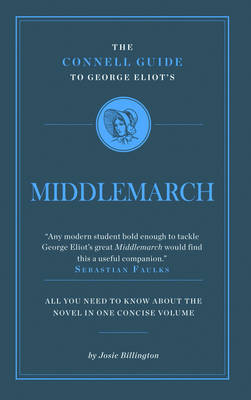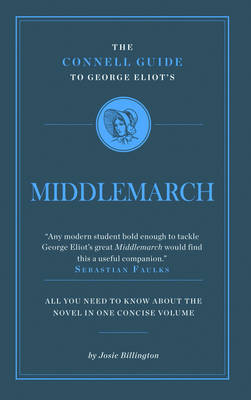
- Afhalen na 1 uur in een winkel met voorraad
- Gratis thuislevering in België vanaf € 30
- Ruim aanbod met 7 miljoen producten
- Afhalen na 1 uur in een winkel met voorraad
- Gratis thuislevering in België vanaf € 30
- Ruim aanbod met 7 miljoen producten
Zoeken
€ 12,95
+ 25 punten
Omschrijving
When Middlemarch was first published in 1872, it was recognised as an unprecedented achievement and as marking a new era in the development of the novel. Edith Simcox, later a close friend and personal champion of George Eliot, wrote that Middlemarch "marks an epoch in the history of fiction in so far as its incidents are taken from the inner life". One of her shrewdest early reviewers, R.H. Hutton, compared her work to that of her popular contemporary, Anthony Trollope, saying: "He scours a greater surface of modern life but rarely or never the emotions which lie concealed behind. His characters are carved out of the materials of ordinary society; George Eliot's include many which make ordinary society seem a sort of satire on the life behind." Today, for fans and detractors alike, says Josie Billington in her succinct but comprehensive and highly entertaining guide, Middlemarch is synonymous with what we mean by the terms "novel", "realism" and "Victorian", and its power to move modern audiences was demonstrated by the powerful appeal of the BBC dramatisation in 1994. So what makes this novel great even for those who feel cheated or saddened by it? For the novel's passionate admirers, Henry James among them, "that supreme sense of the vastness and variety of human life... which it belongs only to the greatest novels to produce" offers its own rich consolations. Perhaps that sentiment is best summed up by the 20th-century novelist Stanley Middleton, who said, if we have no God, we do at least have Middlemarch.
Specificaties
Betrokkenen
- Auteur(s):
- Uitgeverij:
Inhoud
- Aantal bladzijden:
- 128
- Taal:
- Engels
- Reeks:
Eigenschappen
- Productcode (EAN):
- 9781907776076
- Verschijningsdatum:
- 16/10/2018
- Uitvoering:
- Paperback
- Formaat:
- Trade paperback (VS)
- Afmetingen:
- 109 mm x 175 mm
- Gewicht:
- 149 g

Alleen bij Standaard Boekhandel
+ 25 punten op je klantenkaart van Standaard Boekhandel
Beoordelingen
We publiceren alleen reviews die voldoen aan de voorwaarden voor reviews. Bekijk onze voorwaarden voor reviews.











